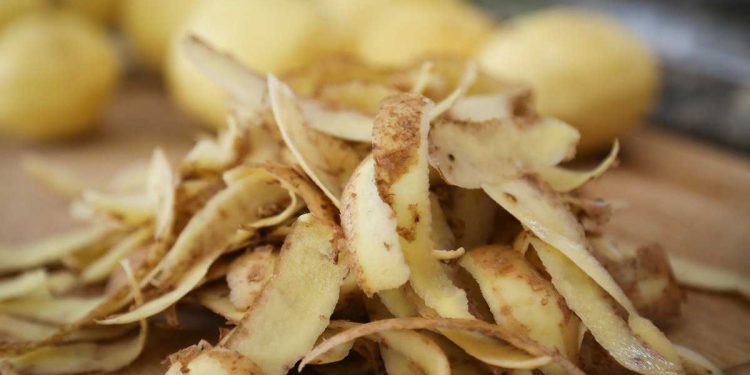#agriculture #wastemanagement #sustainablefarming #potatopeels #plasticsheets #eco-friendly #circulareconomy #resourceutilization #cropproduction #environmentalimpact
Discover an innovative Canadian project that is reshaping the future of waste management in agriculture. This article explores how potato peels can be transformed into eco-friendly plastic sheets, offering a sustainable solution for farmers, agronomists, agricultural engineers, farm owners, and scientists in the agricultural industry.
Potato peels have long been regarded as waste in the food processing industry, contributing to environmental concerns. However, a groundbreaking initiative in Canada is leveraging the potential of potato peels to create biodegradable plastic sheets. According to recent data from the project, researchers have successfully developed a process that turns potato peels into a versatile and environmentally friendly material.
The project, led by a team of scientists and engineers, involves converting potato peels into starch, which is then further processed into plastic sheets. These sheets have various applications in agriculture, such as mulching, greenhouse coverings, and protective films. The use of these sustainable plastic sheets offers several benefits, including reduced reliance on conventional plastic, decreased environmental impact, and improved waste management practices.
Recent findings indicate that the plastic sheets derived from potato peels possess favorable properties, including durability, water resistance, and flexibility. They are also biodegradable, meaning they break down naturally over time without leaving harmful residues in the environment. This breakthrough has the potential to transform waste management practices in agriculture, providing a circular economy approach that minimizes waste and maximizes resource utilization.
The advantages of utilizing potato peel-derived plastic sheets extend beyond environmental considerations. Farmers and agricultural professionals can embrace this innovative solution to enhance crop production, reduce weed growth, conserve water, and protect crops from adverse weather conditions. Moreover, the adoption of such sustainable practices can contribute to a positive brand image for agricultural businesses, appealing to consumers who prioritize eco-friendly products.
The Canadian project that converts potato peels into plastic sheets represents a significant stride towards sustainable waste management in agriculture. By harnessing the potential of this readily available waste material, farmers, agronomists, agricultural engineers, farm owners, and scientists can actively contribute to a greener and more resource-efficient agricultural industry. Embracing such innovative solutions will not only benefit the environment but also enhance the long-term viability and profitability of farming operations.







